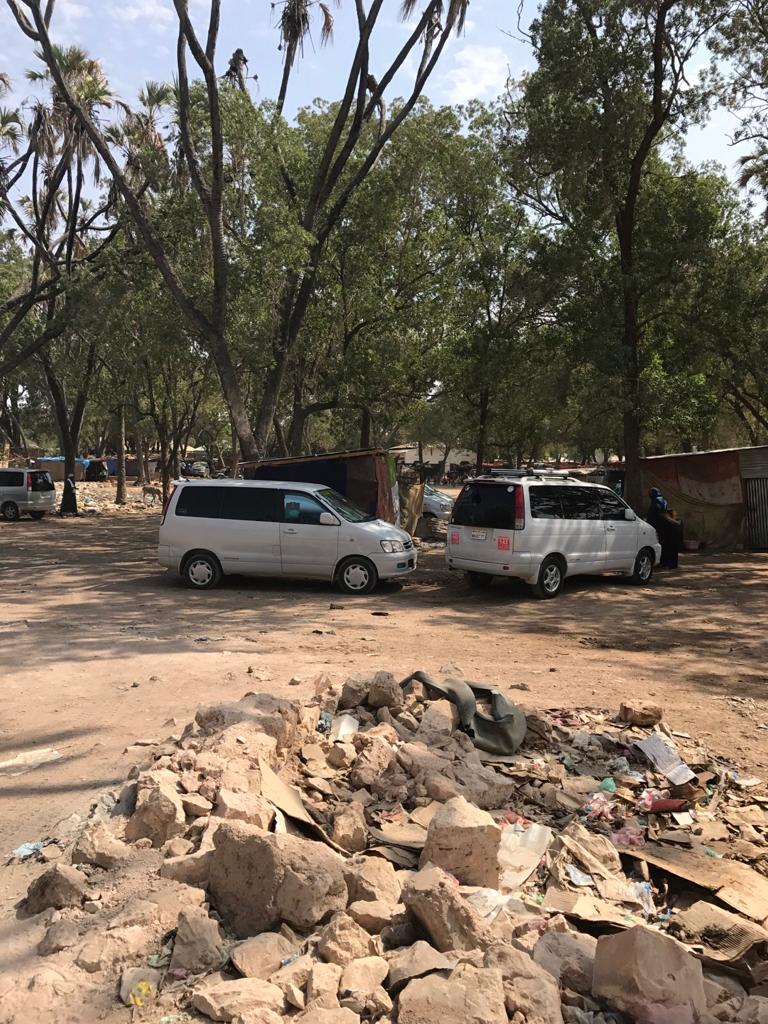Back Home For Good?
Knife crime is an epidemic that continues to spiral out of control within the city. Headlines and reports are made daily outlining victims and perpetrators. It has been noted that the Somali community in England is one of the largest in Europe, and from 1991 to 2001 many left their homes to escape the civil war. As a young Somali who grew up in London it’s unfortunate that many members of our youth fall to the hands of crime. Living in a city with the largest proportion of knife crime tends to raise the question of: what is the solution?
Last year the figures were recorded to reach over 15,000 offences in London. This total does not include possessions offences but “includes 79 attempted murders as well as the 63 homicides and 4,855 assaults using a blade. There were also 164 knife-point rapes or sexual assaults and 812 threats to kill using a blade.”
In recent years we have seen a number of solutions put in place in order to help lessen the problem of knife crime. This included the stop and search method placed to reduce youth violence. However it was heavily criticised for the aggressive control against ethnic minorities who felt they were discriminated against. Communities felt like they were being ostracised and the police force weren’t doing anything to prevent the attacks.
When British Somali teenagers are caught up in danger, their parents send them to Somalia as a safe haven. The aim for this is to make sure they’re away from gang culture and connect them back to their roots. In most instances they’re rehabilitated with culture and religion. This is called “dhaqan celis”. I spoke to an individual (who prefers to stay anonymous), who was caught up with gang culture for about three years and was sent to Somalia for two years.
Dhaqan celis: Returning to the culture
I asked this individual what exactly led to them being taken away, they explained: “When I was young I had a lot of anger, especially as I was growing into a teenager it got the best of me. Unfortunately living in South London and going to a secondary school I got caught up with a bad mix of people. My grades in school started slipping, I was having fights with my classmates and every now and then, my teacher would call my mother about my bad behaviour. My dad would often tell me I’m being sent to Somali but I thought it was rubbish. Until the summer of 2016 he booked my ticket and took me there. However I assumed it was only for the summer only to find out I’d be there for a longer period of time.”
Dhaqan celis, as stated earlier, refers to someone “returning to the culture”. I spoke to a research associate at SOAS University of London Dr Yusuf Sheikh Omar, who focuses on African and Muslim identities. I asked Dr Yusuf on Dhaqan Celis and if the method rarely works, in which he explained: “Honestly it depends. Might work or might not. I’ve met young people back home that were taken to Somali to understand the culture, language, and some have told me they have changed after being exposed to the culture.” He further explains: “disobedient young people need to be reminded not to take the opportunities here for granted. These opportunities don’t exist in Africa.”

In addition to Dr Yusuf Sheikh Omar’s points, our interviewee explained that during their time in Somalia, rehabilitation didn’t work for them. “I was sent to a school for a few months for religious teachings. But during my time there I was in desperate need of something to make time go by quickly. Having the same routine everyday and living without wifi was a struggle, so I needed a substance that can take my mind off everything. Yes, getting substances that can make you high was cheap. Access to it here was very easy.” Dr Yusuf explained to me that occasionally dhaqan celis is not the right method: “Most young people after often “lost to the streets”, so they come back to the UK worse because they found out how to get cheap drugs in Somalia.”
Why do young people within our community get involved with knife crime? Dr Yusuf stated “For a young person in my understanding, there are external and internal categories. One of them is family breakdown. Somali families are managed by single mothers and young boys are lacking father figures. In African culture as a collective, it is important for young men to have father figures. There is a lack of employment and opportunities after graduation for boys who don’t see successful role models in their families.” Other factors that come into play is lack of parenting skills within a diverse society. “Young Somalis are growing up in a different environment (culture, lifestyle, language, mindset). Parents grew up differently so they feel a clash of culture and divided personality.”

So what should Somali parents be doing to help their loved ones? Dr Yusuf suggested parents should allow their kids to open up to them: “Constructive and positive engagement and relationship. Some parents should study skills, allow their kids to open up to them and talk almost as friends. Positive communication is key. Parents shouldn’t transfer to the police/government. First responsibility is the Somali responsibility. Create professional counselling. Lastly, offer alternative activities like holidays. Things that will interest them and ease off their minds.” Somalis are a very prominent community within the United Kingdom, especially London. Many youth centers run by Somalis need to be utilised more to help young individuals (like my interviewee), who felt lost and needed to look at someone from their community as an example of hope. Dr Yusuf added on: “What’s needed is to try and develop some sort of networking between Somali individuals in the media, citizens and parents. Create workshops and seminars to help solve this problem. There should also be a coordination and central information center where all the activities are explained, so people are aware of what’s happening. So there is a cohesive effort within the community.”
First responsibility is the Somali responsibility
Our interviewee who now resides in London concluded: “At the end of the day, my parents wanted the best for me. I won’t say being gone for two years changed me completely, but coming to London slapped me back to reality. However as a community we need to come up with better efforts to help young people caught on the wrong end of the stick. A collaborative effort that will not only help the person see their faults, but one that doesn’t include mental and physical violence.” Mental health is a taboo within our community. Many fail to understand psychological damage and assume someone’s mental health is due to their lack of imam (connection to God). So many individuals such as our interviewee are trying to spread light and conversation within the older and younger generation about ways we can help young people stay away from gang culture and how to help those unfortunately caught up in it.

0 Comments Add a Comment?